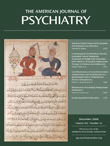An Ordinary Man
I suspect that most readers have seen or at least heard about the wonderful film Hotel Rwanda , which tells the almost miraculous story of how 1,268 persons were saved from certain death during the madness of the frenetic genocide that swept through Rwanda for three bloody months in 1994. Their savior, the manager of a luxury hotel, the Mille Collines, is the author of this extraordinary autobiography, An Ordinary Man , and his name is Paul Rusesabagina.
How did it come about that 800,000 people were butchered by their friends, neighbors, and countrymen in the fastest and most efficient genocide in the history of the world? Why did the Tutsis and the Hutus, the two major tribal groups in Rwanda, slaughter each other despite the fact that they shared the same language, customs, storytelling traditions, government and, in most cases, the same outward appearance? There never even was a Tutsi or Hutu homeland. What divided them was an invented history based on superficial observations, the Bible, and the greed of the European colonial powers.
In his 1863 book, Journal of the Discovery of the Source of the Nile , the British explorer John Hanning Speke came across Africans who lived together. Some called themselves Tutsis, others Hutus. Speke theorized that the greater height and longer noses of the Tutsis were evidence that they were a lost tribe of noble Christians who migrated from the Middle East. He considered the shorter and flatter nosed Hutus to be the accursed descendents of Canaan, the son of Ham who, according to the Book of Genesis, saw his drunken father Noah naked. God then cursed Canaan’s descendents to a lowly life of servitude. In fact, the Tutsis came to be rulers because they owned cattle, a highly prized commodity, while the Hutus were merely farmers.
Speke’s Hamitic hypothesis was widely accepted when at the Berlin Conference in 1885 the European powers, along with the United States of America, gathered to carve much of Africa into areas that would be colonized. Germany got Rwanda but ceded it to Belgian after World War I. In 1933, Belgian scientists then went to Rwanda to measure peoples’ nose length. Based on their finding that a typical Tutsi nose was at least two and a half millimeters longer than a Hutu nose, the Belgians supported the Tutsis by giving them almost all the administrative jobs and praising their noble lineage and beauty. In contrast, the Hutus were consistently told that they were ugly, stupid, and worthy only of working in the fields. With Belgian support, the Tutsis ruled with a heavy hand.
In the 1950s, the Rwandan apartheid system fell apart with the growth of independence movement throughout Africa. The colonial powers retreated, and in Rwanda, the Hutu underclass, with the strong support of the Roman Catholic Church, assumed power. A quarter million Tutsis fled to Uganda, formed a guerilla army, and raided border areas. The Hutu response was to try to purge all Tutsis from the country. A new Hutu radio station proclaimed that the nation was under siege. In a charade, some Hutu soldiers in Kigali, the capital, were ordered to shoot their guns into the air at night. The radio station promptly declared the city to be under attack by Tutsis, who were dehumanized by calling them cockroaches.
Inflamed by the Hutu radicals who broadcast messages to exterminate the cockroaches and supported by the French government who regarded Hutus as exemplary guardians of the French language and cultural ideals, the killings began in earnest. I will spare readers the gory details except to note that machetes were the favored tool of extermination and that men, women, and children were treated equally. Amid the chaos, only one small place of refuge remained untouched, the Hotel Milles Collines. Against impossible odds, its manager Paul Rusesabagina—a Hutu married to a Tutsi woman—put aside his personal feelings, and through diplomacy, daring, incredible courage, and great luck, accomplished one of the greatest human feats of our times by protecting the lives of everyone who came to his hotel.
He considers himself an ordinary man—perhaps he was an overachiever—and the account of his performance makes for a thrilling read. His harshest words are aimed at the United Nations, which was worse than useless because its presence in Rwanda created a fatal illusion of safety before its peacekeepers fled altogether, and at the Christian priests and pastors who remained silent while refusing to aid those who were begging for help.
The killing finally ended. A new government abolished the Hutu and Tutsi identity cards. Paul left Rwanda with his family for a more tranquil life in Brussels. His consistent humility allows readers to deal with the harrowing details of his autobiography: “Over and over people kept telling me that what I did at the Mille Collines was heroic, but I never saw it that way, and I still don’t. I was providing shelter. I was a hotel manager doing his job. That is the best thing anyone can say about me, and all I ever wanted. And that’s really the best I have to give” (p 190). Indeed, he was a steadfast hotel manager, trained to negotiate contracts and provide shelter for those who need it. His job never changed, even in the sea of fire.
I unabashedly recommend this precious little book to all readers. Its concluding words represent the hope of humankind: “Whenever the killing season should next begin and people should become strangers to their neighbors and themselves, my hope is that there still be those ordinary men who say a quiet no and open the room upstairs” (p. 204).



